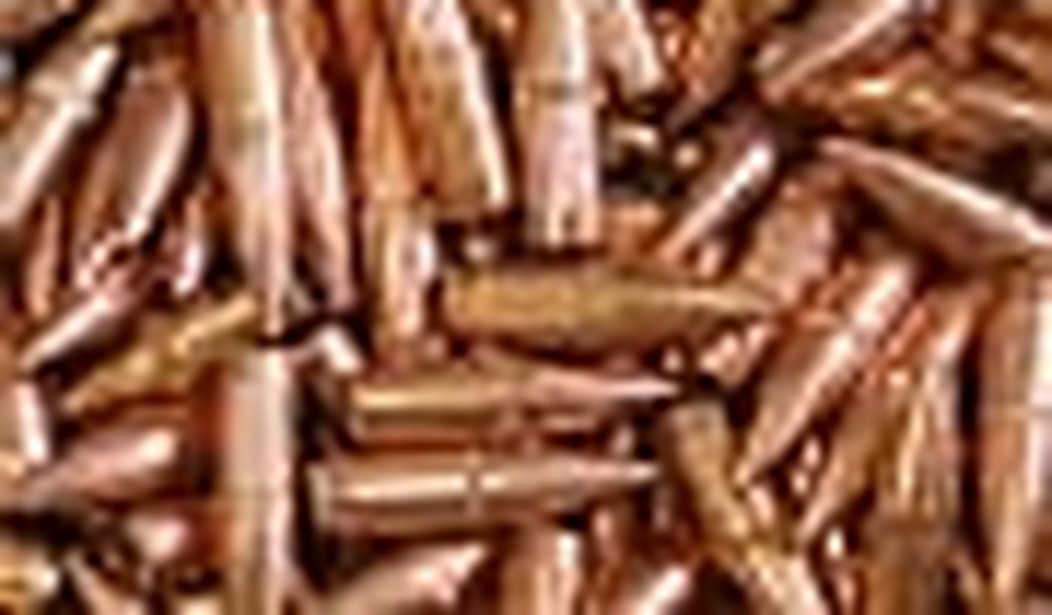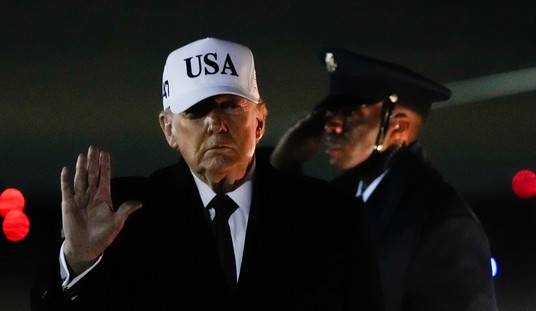So popular is the 7.62 caliber ammunition for AK-47 semi-automatic assault rifles that one Academy Sports and Outdoors in the border city of McCallen, Texas, recently stacked shoebox-sized cases several feet high down half a row in the hunting section.
Employees said customers routinely fork over thousands of dollars — in cash — to pile shopping carts high with ammunition that Mexico’s drug cartels will use to lock and load their favorite assault-style weapons and handguns for battle against police and each other. Employees like Francisco Rodriguez, who works in the guns and ammo section, are not short of stories about Hispanic men clearing shelves of 9 mm rounds, another favorite.
“I had a guy come in the other day and clear me out of .223s,” Rodriguez said, referring to ammunition that fits assault-type rifles as well as classic hunting rifle styles. But unlike a typical hunter, this customer “paid $5,000 cash, and then he went to one of our other stores and cleaned that out, too. I didn’t ask what he was going to do with it. He probably was going to take it to Mexico.”
The market for certain kinds of ammo is so robust these days that sporting goods stores large and small report being unable to keep up with demand for .50 caliber sniper rifle rounds, which can sell for $4 each, or 5.7 caliber “cop killer” rounds that, fired from a handgun, can punch through police body armor. The bullet business is simply booming all along the border, and I have found that’s no coincidence.
As big media outlets are belatedly starting to report, American law enforcement authorities, under pressure from Mexico, are escalating a push to slow the guns bought from U.S. merchants and smuggled by drug gang paramilitaries. These have helped them kill more than 6,000 Mexican gangsters, innocent citizens, police, and government officials in just the past year. But what’s been overlooked is that the the gun smuggling problem has an evil, much neglected, twin sibling: bullets. There is nothing illegal about buying or selling large amounts of civilian-use ammunition to just about any adult in the U.S. Unlike some laws governing the sale of new guns, bullets are a commodity almost as unregulated as milk or bread, with no record keeping requirement, limit on volume per individual, or disqualifying criminal history for buyers. Also, unlike guns, bullets don’t have serial numbers that can later be traced to a store or person.
The one law that applies to ammunition purchases doesn’t hinder much. It requires that buyers be U.S. citizens. But retailers aren’t required to check. So it’s don’t ask, don’t tell. Day shoppers from Mexico are taking advantage of the bounty and lax inspections on the southbound return trip.
Mountains of ammunition types that fit cartel weapons of choice keep turning up across the Rio Grande in underground weapons depots. Mexico’s attorney general’s office gave me documents that report three million rounds have been seized in the country in just the last 24 months, a volume considered to be a very small percentage of a vast unknown total.
Owning bullets or guns is mostly illegal in Mexico, and, as with the guns, authorities on both sides unambiguously peg U.S. retailers as sating a recently ravenous black market hunger for ammunition. Whereas the buying and smuggling of American military assault-type rifles carry some risk of smugglers being found out, ammunition is so loosely regulated that Mexican smugglers are simply dropping over on three-day shopping visas to cruise a bounty of stores within the 25-mile deep commercial zone. The visas allow them to wander, judging by a smattering of federal court cases I’ve been able to locate and study. One of these involved a well-oiled ring of bullet smugglers who’d used their day visas to bring in more than 80,000 rounds in a short time.
American and Mexican authorities are only now starting to crack down on this trade, but succeeding will prove as tough as interdicting guns. “The main thing is for us to stop the illegal flow of guns going to Mexico, but if they don’t have bullets they can’t use them,” said J. Dewey Webb, the Houston-based head of the U.S. Bureau of Alcohol, Tobacco, Firearms, and Explosives. “It’s just as important and it’s just as illegal. If we could reduce the traffickers to throwing rocks at each other, I think we’ve achieved our goal.”
Authorities believe one of the nation’s busiest ammunition smuggling corridors runs through South Texas because of the state’s dearth of regulations and a proliferation of gun merchants in the densely populated regions close to the Mexican border. That wide, south flowing pipeline, they say, runs through Laredo, McAllen, Harlingen, and Brownsville. Mexico lists the connecting state of Tamaulipas as one of the top five states for illegal ammunition seizures. Those who speak for large public American sporting goods retailers, as well as small private gun shops so ubiquitous in Texas, don’t like to contemplate the prospect that they may be profiting from Mexico’s bloodshed. There’s a certain willful denial going on. Instead, many of those I visited in recent months from Brownsville to Laredo insisted that wealthy target-shooting hobbyists are the ones buying out their stocks of, say, .50 caliber sniper rounds that can cut through concrete buildings.
Austin Ortiz, manager of the firearms section in a newly opened Academy in McAllen, said the 7.62 and .223 calibers are among his best sellers. There were no company instructions to call the ATF or check for citizenship on suspicious buyers, he said.
“There are a lot of gun ranges around here,” Ortiz told me when I asked him why anyone would buy so much. Asked if he thought smugglers also were buying, Ortiz contemplated the question before offering a surprisingly candid answer. “I’m pretty sure there are people out there who will take it over and sell it at a profit.”
Because of the absence of mandatory or voluntary controls on ammo sales by socially concerned bullet merchants, federal agents on the hunt for smuggling-minded Mexican shoppers will remain hard pressed to cut this gusher of a supply line. Whereas guns recovered in Mexico can at least be traced to a store and original buyer, bullets leave no trail. Smugglers eliminate any last clue by removing the rounds from coded store boxes. That’s why in pictures of seizures you always see the bullets filling buckets or plastic bags.
Bullets are considered too heavy to swim or hike into Mexico in profitable enough quantities. So shells usually go into secret vehicle compartments and are driven in the direction everyone knows gets less attention — south.
The U.S. Customs and Border Protection fields some small mobile groups of inspectors who randomly check Mexico-bound vehicles for cash, guns, and — of late — bullets. But even agency officials admit the effort isn’t much of a deterrent on ammunition smugglers because the federal agents are far too few in number. Dumb luck has proven a better friend to law enforcement as American agents or police stumble over smuggling operations.
“The reality is that the smuggler has the advantage over us,” conceded CBP Assistant Port Director Jose R. Uribe. “It’s just the nature of the border.”
To catch an ammo smuggler, an American agent has to somehow catch physical sight of a smuggler or catch them in the act. For instance, in November 2006, El Paso police officers just happened to spot two Mexican men driving into an alley behind Alamo Shooters Supply. They followed and watched the men cart out dollies laden with tens of thousands of rounds. Javier Paredes Vega and his brother Jorge admitted they were regular ammo smugglers who made profitable use of their day visa privileges. Last year, both pleaded guilty to weapons violations.
Everyone seems to understand by now that the sale of firearms in America is as politically protected as agricultural subsidies. But regulating commodities like ammunition, either requiring a record of volume sales or restricting quantities, may be more open for debate. That laws have been passed to regulate certain retail commodities for a higher social good is certainly not without precedent. Take “precursor” cold medicines that have the dual-use purpose of making illegal methamphetamine. Selling cold medicine was any retailer’s right until the early 2000s. That was when national retailers like Walgreens and Target began setting voluntary limits on the sale of common cold medicines as a means to dampen the meth contagion. Texas and other states eventually passed laws. In October, then-President Bush signed the Methamphetamine Production Prevention Act, requiring retailers to log sales of cold medicines as a means to help law enforcement and deter meth producers.
“I do see a parallel,” said East Texas-based Assistant U.S. Attorney Kevin McClendon, who in 2004 filed a civil lawsuit against Walgreens seeking to force compliance with certain sales reporting rules. “If the abuse of the sales offends the public enough, I could see restrictions going that way with ammunition sales too.”









Join the conversation as a VIP Member